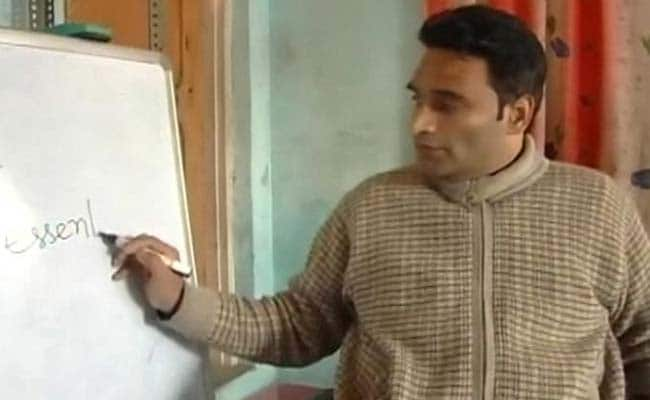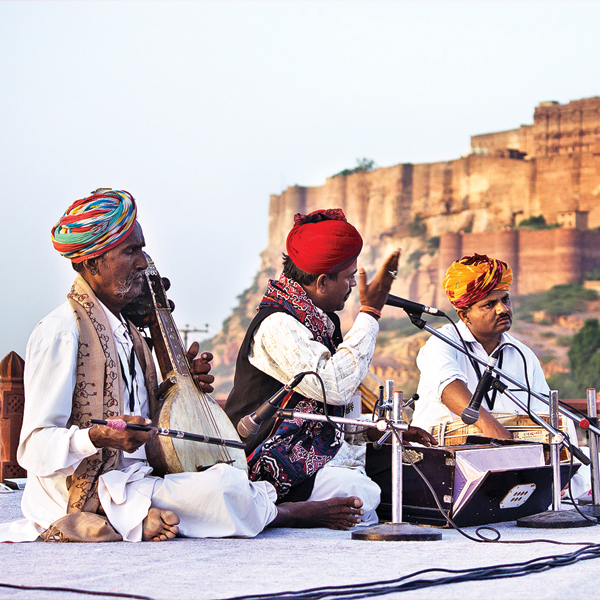Even as everyone gets ready for shenanigans on the World Disability
Day, on December 3, the community continues to be plagued by dependency.
Prince Mathews Thomas reports

In October, a job fair was held that sounded like any other. Over 1,300 candidates were present from across the country, vying for 150 openings in 40 companies. The ‘air’ was full with hope and excitement. But it wasn’t just another job fair. Each of the candidates suffered from a disability, ranging from visual impairment to autism. And they were not gathered in an auditorium or a ground. This fair was held online.
The first online job fair for the
disabled in the country included MBA and computer graduates. Of the
total, 334 candidates were shortlisted. These candidates entered a ‘chat
room’ with the recruiters, who conducted audio and video-aided
interviews. By the end of the day, 11 candidates entered the last round
of recruitment, and two were hired. The conversion rate might have been
low, but a barrier had been broken.
“The companies said it was an eye-opening experience for them, especially seeing such as pool of talent in the PwD (persons with disability) category,” says Dipesh Sutariya, co-founder of Enable India that organised the fair. “While it is a convenient way for employers to post job descriptions, for the seekers, it means avoiding the inconvenience and cost of travelling,” he adds. Sutariya had founded the NGO in 1999, along with his wife Shanti Raghavan. The two software engineers had returned to India, to use the experience of rehabilitating Raghavan’s brother – who, despite being visually impaired, “is in a good position” at multinational Dell.
Though initiatives like these improve the inclusion quotient of India, this is just one side of the ground reality. In November, Indian Railways conducted a recruitment drive to hire disabled job seekers. The country’s biggest employer wanted to fill 450 seats for the disabled, as ordered by the Supreme Court. But in 10 of the 142 centres across the country, when the candidates arrived to write the test, they were left helpless.
They had to take the test on the second and third floors of buildings that didn’t have lifts, or ramps. In Bengaluru, 300 candidates couldn’t take the test.
In Delhi, Manish Bhardwaj, who suffers from polio, had to drag himself up the stairs to the second floor.
"The government wants us to beg. First, we have to fight the case till the Supreme Court to get vacancies in the disability quota filled. Then, we have to struggle to reach the examination centre," a leading publication quoted Bhardwaj as saying.
Macro issue
Though the 2011 Census says there are 2.68 crore PwDs in India, making up for 2.21 per cent of the population, experts say the actual number is much more.The world average is 15.3 per cent. “It (the under-reporting) is a cultural problem in India. We shy away from talking about disability as there is a social stigma attached to it,” says Meera Shenoy, founder of Youth4Jobs, which helps companies meet their inclusion mandate.
Shenoy, who was an advisor to S Ramadorai, Chairman of National Skill Development Agency, conducted a study for International Labour Organisation (ILO) last year. The study, quoting the World Bank, says that “there is growing evidence that persons with disability are around 40-80 million, which constitute between 4-8 per cent of India’s population.”
The ‘missing population’ problem complicates the core issue concerning the community – dependency. The ILO study says that 73.6 per cent of the PwDs are out of the labour force. More than half of them are illiterate and have almost no access to training. Despite the Supreme Court’s order in 2014 to reserve 3 per cent in jobs and promotions for the disabled, thousands of posts lay vacant. According to the government’s 2010 study, only 3.54 per cent of the seats marked for the PwDs in ministries and departments have been filled. Similarly in public sector companies, just 4.46 per cent of the seats are occupied.
“Some public sector organizations like NTPC and BHEL have taken a lead in recruiting disabled and in some cases, making the work place accessible. However, … in no case is the percentage of disabled to the total manpower more than 2 per cent,” says the ILO report.
“Landing a job is the first window of freedom for a PwD and her family. It is the first step from dependence to independence,” says Shenoy. But that is tougher in the rural areas where stigma is higher, and access to education and training for the disabled is a bigger challenge.
The private sector doesn’t fare much better. “Companies are opening up slowly and taking initiative to make workplace more inclusive. However, it is limited to multinationals and big corporate houses; and within them, very few are really doing in the right sprit. It shouldn’t be just seen as CSR (corporate social responsibility),” says Chirag Chauhan, a Mumbai-based chartered accountant. Chauhan, who is physically challenged, failed to get a job even after clearing the chartered accountant exams. “Later only through reference I was able to get a job!” adds Chauhan, who now runs a firm.
Strategy vs charity
“Awareness is the biggest problem,” says Sutariya. While parents, especially in the rural areas, are resigned to the belief that their disabled children don’t have a future beyond the four walls of the house, companies, on the other hand, are not sure if inclusion makes for a business case. “Many of the companies don’t even know what inclusion is,” says Shenoy.
But it is not all bad news. Call centres are among the biggest recruiters of the visually impaired. A call centre near Pune is completely managed by the blind. Similarly, a Costa Coffee store in south Delhi is run by ‘special’ employees. At many of the retail outlets, one comes across ‘silent’ waiter, brew-master or a sales person. For many of the retailers such as Max, Café Coffee Day and McDonald’s, employing PwDs makes business sense. Attrition is low among the special employees, and a heightened sense of smell and vision make them excellent at jobs such as brewing.
Lemon Tree Hotels is one of the few companies that have embraced inclusion as an integral part of their strategy. Patu Keswani, the company’s Chairman and Managing Director, admits that he didn’t have a ‘grand vision’ when the company first recruited a PwD to work in the kitchen of one of its properties. “We wanted to give jobs to people who otherwise wouldn’t have got a job,” says the hotelier in a company video. But now, that eight-year initiative is part of Lemon Tree’s brand equity. “They can be like normal people and there is no sense of charity. That is what kills somebody’s self-dignity,” says Keswani.
Another company that has found talent in the PwDs is the local unit of Valeo, the French automotive supplier. After recognising the opportunity, the company has now scaled up its recruitment and training of PwDs. Its parent in France has made the Indian experience a showcase for the rest of the units of the $13-billion group.
We take a look at what the two companies are doing right.
Source : The Hindu , 23rd Nov 2015
Source : The Hindu , 23rd Nov 2015




















